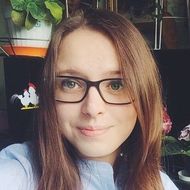Student Internship Programme at the

In April 2020, the Institute for Applied Political Studies (IAPS) launched an internship programme. Programme interns work together with Institute staff on joint projects, as well as acquire new research and communication skills. 40 students are currently participating in the programme.
The Institute for Applied Political Studies has always been a place where students could engage in both research and field work, but in April 2020, the Institute decided to expand student opportunities for scholarly and practical engagement. Now students may not only to participate in the implementation of projects, but also to fully immerse themselves in the work of the Institute alongside the Institute staff.
Boris Shabayev, IAPS Expert, Internship Programme Manager

We wanted to create a rich environment that fosters the intellectual, personal, and professional development of HSE students, so that they became competitive specialists with work experience by the time they graduate from the University. The internship programme gives them an opportunity to try themselves at working on real tasks, and the extent to which they apply themselves to the projects still depends on their own desire and initiative. It's like a real job.
The IAPS Internship Programme includes three core features:
1. Project work with the Institute staff
All interns will join project teams that work on current projects of the Institute. This approach helps students to apply the knowledge they have gained in lectures and seminars, develop communication skills, and gain experience working in a team. Working alongside senior colleagues helps students feel involved in the implementation of a given project and gives them the opportunity to contribute to solving socially important problems.
2. Mentorship
While working on the project, each intern interacts with a senior colleague who works as a mentor: the mentor assigns tasks, checks them, provides feedback, helps to deal with difficulties, and answers all questions. ‘We maintain constant dialogue with our interns,’ says Boris Shabaev. ‘This helps interns reach their full potential and it helps us select tasks that are interesting for each of them.’
3. Education
In addition to completing hands-on project work, students attend expert lectures and participate in seminars, which are usually focused on the current tasks to be solved by the interns. Since the beginning of April, six different events have been held: from a lecture on business ethics to a seminar on communication strategy analysis.
КKira Sokolova, IAPS Expert, Head of the Internship Programme Education Module

It is important for us to convey to students that this is a real job, not a study project, so they have a great responsibility: the quality of the project as a whole depends on the quality of each intern's work. Thus, failure to meet the deadline leads to problems for the entire team. This is what we teach our interns.
‘Of course, we have a certain list of topics that we would like to tell our interns about. But when preparing for seminars, we are more focused on the tasks our interns face while working on their projects, as well as on requests from students and project supervisors,’ explains Kira Sokolova.
The internship programme lasts several years, during which students move up the career ladder. Currently there are three levels in the programme: Junior Intern, Middle Intern, and Senior Intern. Each level has its own system of responsibilities and rewards. In the programme there are currently 29 Junior and Middle interns, as well as 11 Senior interns, who often act as mentors for younger colleagues and try to help them.
Student Impressions
Polina Vanevskaya, Senior Intern
Over the past month, I have learned how to interact with younger colleagues: how to set tasks, how to track the work process, how to evaluate tasks and provide feedback. I also continue to gain experience with presenting and structuring information for reports, conducting participant observations, and developing tools for quantitative research.
Maria Ermolaeva, Middle Intern
I like the format of this internship much more than the one that was before! I especially like the fact that my senior colleagues conduct seminars on useful and interesting topics!
Guzel Orlova, Middle Intern
I have been working at the Institute for Applied Political Studies as a Research Assistant since July 2019. During this time, I’ve participated in several interesting projects and developed my skills—both analytical and communicative. For example, as part of a project related to the cultural infrastructure of Moscow, I learned how to communicate with respondents and interview them. Feedback from project managers and all staff is excellent: I know that I can turn to them with any question and always get an answer. The new intern programme launched in April 2020, and they introduced several innovations that have significantly improved it. For example, they started to conduct master classes with homework, which helps us hone our skills.
During these three months, the participants of the internship programme managed to work on projects that were commissioned by representatives of the regional and federal governments, NGOs, and businesses. Students participated in research in the fields of urban policy (strategy for the development of creative spaces, community centres), youth policy, development of non-profit organizations and corporate social responsibility, etc. While working on the tasks, the interns demonstrated various research skills: database searching, processing, organizing and visualizing, analyzing academic sources, recruiting respondents, interviewing, transcribing interviews, writing analytical texts, analyzing communication strategies, and more.
In addition, programme participants develop their soft skills: they learn to work in a team, distribute tasks among the participants, compromise, and communicate with senior colleagues, respondents, and external experts.
The three-month pilot intern programme showed that this form of interaction with students is useful both for students and for the Institute. Students have gained experience and skills necessary for work, while the Institute has found potential employees.
Шабаев Борис Михайлович
See also:
'I Have an Interest in Everything Related to Islam and Politics'
Mir-Ali Askerov became a scientist out of curiosity: initially, he read about the activities of radical Islamist groups, and later, he learned how to study them academically. In this interview with the HSE Young Scientists project, he explains why he chose to study moderate political parties in Central Asia, discusses the concept of God's sovereignty in lawmaking currently adopted in Afghanistan, and shares his fascination with Sufism.
‘This Internship is a Great Start to an Academic Career’
This year, Angelina Yudina graduated from the Bachelor’s in Business Informatics at HSE University and enrolled in the Master’s in Economics and Economic Policy. She has also worked as a research assistant at the International Centre of Decision Choice and Analysis since May 2021. In her interview, Angelina spoke about her role and responsibilities as a research intern, the personal and professional skills she has developed, and her plans for the future.
‘It’s a Very Small Area of Political Science, and Working to Redress That Is Very Satisfying’
On March 15, Judas Everett defended his doctoral dissertation ‘The Effect of the Patterns in the Dissolution of Communism on the Transition to New Systems in Eastern Europe’, which investigates the relationship between the demise of communist regimes in Central and Eastern Europe and the quality of democracy in the post-communist regime. The defence took place remotely. His academic supervisor was Professor Andrey Akhremenko of the HSE University School of Politics and Governance at the Faculty of Social Sciences. In his interview, Judas talks about the topic of his research and explains why political science is more important than ever.
Cliometrics: 20th-century Revolutions Came in Waves
Having studied the 20th century revolutionary processes, Andrey Korotayev (HSE), Leonid Grinin (HSE) and Anton Grinin (MSU) have put together an extensive evidence base, proposed a new typology of revolutions and revolutionary waves, and introduced the concept of 'analogues of revolutions'. Their study '20th Century Revolutions: Characteristics, Types, and Waves' is the follow-up to an earlier paper published in Russian. The new findings are presented in Humanities & Social Sciences Communications.
Master's Programme 'Politics. Economics. Philosophy': Perfect Combination of Three Disciplines
Modelled on classical British programmes, the HSE Master's Programme 'Politics. Economics. Philosophy' (PEP) helps students delve deeper into economics and political science, broaden their philosophical outlook, develop their critical thinking skills, and enhance their social and academic capital. HSE News Services spoke with current first-year student Tamás Barnák and programme alumnus Franz Walternberger about why they chose PEP and what it is like to study at HSE University.
'State Owes Me': Social Justice, as Seen by Russian University Undergraduates
'I am the state' ('L'etat c'est moi') is a phrase attributed to French king Louis XIV. For Russian undergraduates today, the motto seems to be 'the state owes me'. According to many of them, the government must support younger people above all else, and this is what they understand by social justice. Read on to learn what else Russian undergraduates think about justice and why they are not willing to make sacrifices to achieve it, based on a paper by HSE political scientists Valeria Kasamara, Marina Maximenkova and Anna Sorokina.
American Political Scientist Thomas Graham Speaks at HSE
On January 22, Thomas Graham, former Special Assistant to the President of the United States on Russian and Eurasian affairs (2004-2007), spoke to faculty and students of the Faculty of World Economy and International Affairs about the fundamentally competitive nature of US-Russia relations and prospects for cooperation between the two countries.
SCO Headquarters and Peking Duck: HSE Lyceum Students’ Internship in China
This summer, students of Asian Studies at HSE Lyceum spent a month in China. They studied at Liaoning Normal University, visited ancient temples, and met the Shanghai Cooperation Organization (SCO) Secretary-General. The students spoke to HSE News Service about their trip.
How Moral Obligation Drives Protest
Researchers have long studied the motives that inspire people to join in collective action. Three factors have received particular attention: anger caused by apparent social injustice; belief in the efficacy of collective action; and politicised identity. New studies have recently prompted a team of scholars, including a HSE researcher, to incorporate two additional factors into the existing model: ideology and moral obligation.
Democracy Isn’t for Everyone: Russians Adopt Western Values but See Them in Their Own Way
Europe wants to live in a democracy. This is especially true for residents of countries of Northern Europe, but less so for those of former socialist countries, especially Russia. While almost everyone has a positive attitude towards democracy, people have different understandings of it. Alla Salmina studied the relationship between attitudes and understandings of it using the data of 28 countries that participated in the European Social Survey (ESS).


